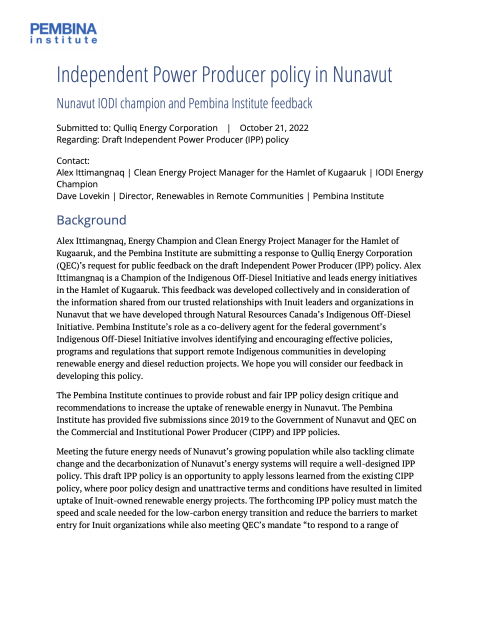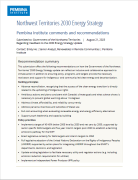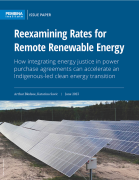Alex Ittimangnaq, Energy Champion and Clean Energy Project Manager for the Hamlet of Kugaaruk, and the Pembina Institute are submitting a response to Qulliq Energy Corporation (QEC)’s request for public feedback on the draft Independent Power Producer (IPP) policy. Alex Ittimangnaq is a Champion of the Indigenous Off-Diesel Initiative and leads energy initiatives in the Hamlet of Kugaaruk. This feedback was developed collectively and in consideration of the information shared from our trusted relationships with Inuit leaders and organizations in Nunavut that we have developed through Natural Resources Canada’s Indigenous Off-Diesel Initiative. Pembina Institute’s role as a co-delivery agent for the federal government’s Indigenous Off-Diesel Initiative involves identifying and encouraging effective policies, programs and regulations that support remote Indigenous communities in developing renewable energy and diesel reduction projects. We hope you will consider our feedback in developing this policy.
The Pembina Institute continues to provide robust and fair IPP policy design critique and recommendations to increase the uptake of renewable energy in Nunavut. The Pembina Institute has provided five submissions since 2019 to the Government of Nunavut and QEC on the Commercial and Institutional Power Producer (CIPP) and IPP policies.
Meeting the future energy needs of Nunavut’s growing population while also tackling climate change and the decarbonization of Nunavut’s energy systems will require a well-designed IPP policy. This draft IPP policy is an opportunity to apply lessons learned from the existing CIPP policy, where poor policy design and unattractive terms and conditions have resulted in limited uptake of Inuit-owned renewable energy projects. The forthcoming IPP policy must match the speed and scale needed for the low-carbon energy transition and reduce the barriers to market entry for Inuit organizations while also meeting QEC’s mandate “to respond to a range of energy use and conservation issues within Nunavut, including alternative energy sources.”
The IPP policy should reflect a process that is fair and transparent and results in Power Purchase Agreements (PPAs) being developed mutually between Inuit and QEC. The IPP policy should also reflect the intent of the Nunavut Partnership Committee by promoting meaningful collaboration to advance shared priorities including Inuit prosperity.
Delivery of the IPP policy in Nunavut has been slow, resulting in the delay of several renewable energy projects across the territory. The situation has created uncertainty for Inuit businesses, communities and developers who are ready to advance projects. This forthcoming policy must create clarity and certainty in addition to prioritizing Inuit-led projects.









